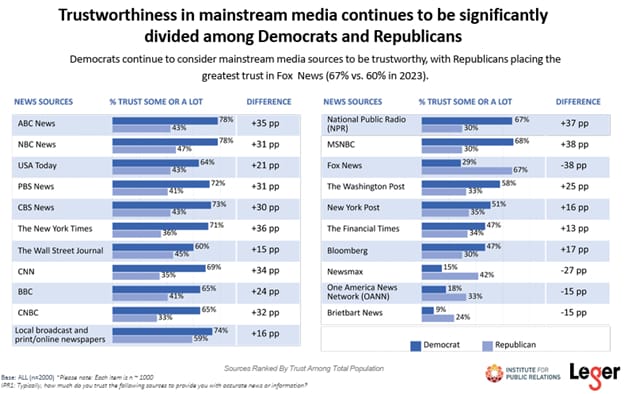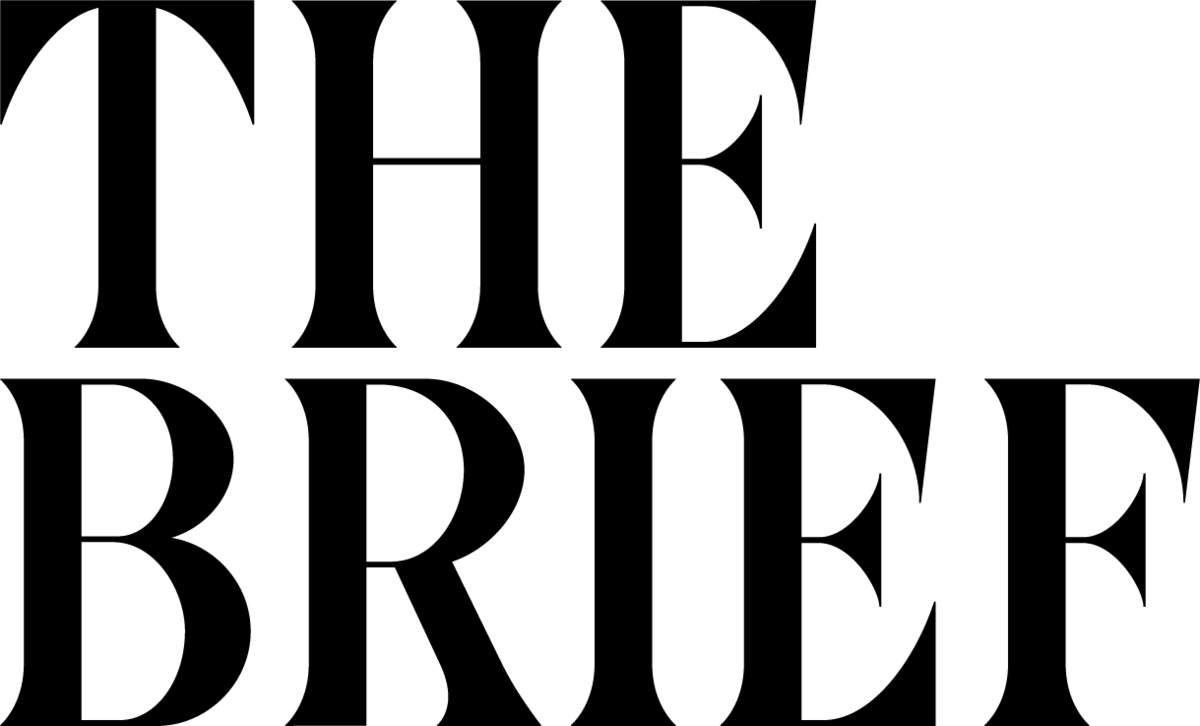
21,543 founders and comms leaders start their weekend with The Brief.
Join them to receive weekly insights into the media, communications, and PR industry, written by journalists themselves.
📬 In this Edition
🔥 One Big Thing – Family Matters
Who Americans really trust for news (spoiler: it’s not journalists).🎯 This Week’s Playbook – Pitching the Family Table
What PR pros can learn from the rise of “kitchen-table credibility.”📖 Required Reading – The Disinformation in Society Report + CBS’s Bari Weiss Era
Trust gaps, billionaire influence, and the new face of “objectivity.”💯 One Minute Masterclass – Finding the Reporters Everyone Trusts
Why certain bylines transcend bias—and how to get them telling your story.🔁 Media Moves – The Week’s Key Shifts, Promotions, and Departures
Have feedback for what you’d like to see? Hit us up. |
Introducing the first AI-native CRM
Connect your email, and you’ll instantly get a CRM with enriched customer insights and a platform that grows with your business.
With AI at the core, Attio lets you:
Prospect and route leads with research agents
Get real-time insights during customer calls
Build powerful automations for your complex workflows
Join industry leaders like Granola, Taskrabbit, Flatfile and more.
🔥 One Big Thing: Who Do Americans Trust for News? Ask Your Family–Literally
I find it odd to think I’d trust my family of origin on just about anything, except maybe what kind of tires to put on my Toyota Corolla. Not the way gossip flies around the Thanksgiving table. Or how inferences turn into facts. Or how the proverbial game of telephone can flip a story on its head. Then there’s the myth-making: As I write this at a goth Chicago coffee shop, one family member has recast a reckless gambling addict as a heroic leader of men. (That’s in part true … but only half true at best … and I’ve got court documents to back it up.)
Blame it on my bias as a reporter; in the service of advancing a family narrative, facts are often irrelevant. That’s why I find it alarming that a new piece by Alison Carter in Ragan PR Daily makes this case: When it comes to news, “Americans [increasingly] don’t trust news sources for information. They trust their family.”

What the fuh?
Carter knows from where she reports. She cites the fifth annual Disinformation in Society Report from the Institute for Public Relations and Leger and often, institute-driven studies carry the heft of non-profit orientation behind them. Not that this translates to everyday news consumers. NPR (which is a “.org”) continues to be despised by the Right, trusted by less than one in three Republicans (30%), the study found.
With traditional media outlets, the demarcations are as predictable as demoralizing. Who trusts Fox News? Two in three Republicans (67%) but less than one in three Democrats (30%). Those numbers flip on an identical scale with MSNBC. And to be sure, things only promise to get messier. CBS, the network of Walter Cronkite and once considered the pinnacle of objectivity, now has Bari Weiss at the helm, thanks in large part to a big push from Oracle billionaire (and Trump supporter) Larry Ellison.
But does the Oracle of Oracle have as much clout as Uncle Morty? It’s hard to say, but perhaps not. Carter notes that “82% of respondents put some or a lot of trust in family members for getting their news. Following that category, 79% trust people like me.” Credit Carter for pointing out that “people like me” is vague at best. It could mean any commonality from hometown to favorite football team to just plain old folks you like and drink the same beer.
If that sounds confusing, think about what this means for PRs and media teams trying to get their stories in front of viewers and listeners who will actually trust the content. It’s not as though you can pitch Morty to save a spot at the dinner table for your client. There is a ray of light when it comes to how much people trust local media outlets, though. It shows “at least 50% trust from both political groups.”
What would I advise? That is tough. Arguably above anyone’s pay grade. But let’s start with this bedrock principle and work our way from there: While you can certainly finesse spin, exert influence and laser-focus the message, you cannot control what people do wth it or choose to believe.
Embrace that reality. In terms of political divides, the report pretty much restates the obvious (even if the gulf is widening). Think about these five suggestions as you ponder the trust question:
Avoid politics. The polarizing climate means people will tune out your source if they sniff any bias or land on a network they don’t trust because of bias, real or perceived. Certain major outlets, though, will never have this issue: Think Better Homes and Gardens or People, for example. Afraid to go to Fox News? Think Fox Business News, a much safer choice. Or the Guardian? They write about a lot more than just the latest hijinx out of Washington.
Go local—but stay smart. Niche geography raises the question of whether the juice is worth the squeeze. But if you think creatively, interns could make these pitch rounds. (Here, spray and pray may just be a good idea.) What’s more, local news outlets are often starved for resources and will welcome PRs who offer production support. Moving up a step, local TV news channels that belong to major media networks can pack a wallop in terms of reach but are often divorced from the slants of their corporate parents.
Subscribe to our premium content to read the rest.
Become a paying subscriber to get access to this post and other subscriber-only content.
Upgrade


